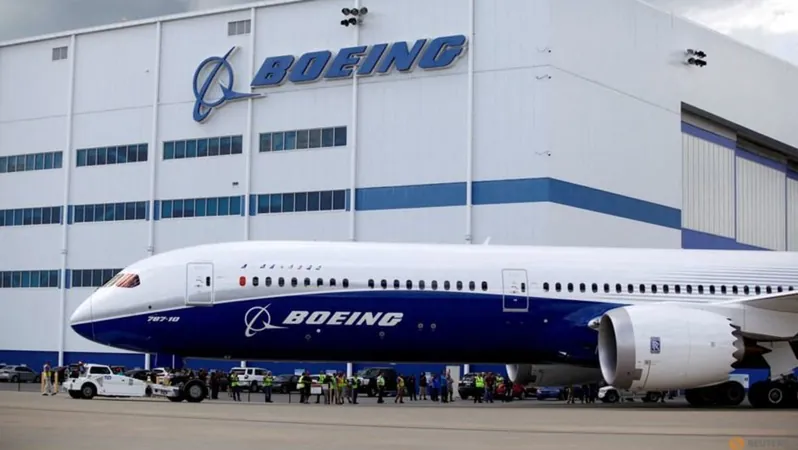
Boeing's Bold Leap to Safety: New Quality Control Measures Amidst Turmoil
2025-01-03
Author: Nur
In a significant move to regain public and regulatory trust, Boeing has announced the implementation of over a dozen new quality control checks, as unveiled in a statement on January 3, 2024. This comes on the heels of several safety incidents that have raised alarms among both the public and aviation watchdogs.
The aviation behemoth has found itself under intense scrutiny from US regulators due to safety scares, notably including a mid-flight incident involving Alaska Airlines. Passengers faced a terrifying moment when a panel blew out, forcing an emergency landing. Such incidents have only compounded the pressure on Boeing, propelling the company into action.
To address these challenges, Boeing has introduced its new "Safety & Quality Plan," which features comprehensive enhancements in the training of quality control inspectors and mechanics. One key element of this initiative is the introduction of random quality audits that take place whenever aircraft parts are removed and returned, ensuring the highest standards are upheld.
In addition, Boeing is focusing on improving the quality of the 737 fuselage assembly produced by Spirit AeroSystems—where the faulty panel originated. By increasing inspection points at build locations and instituting a customer quality approval process, Boeing claims to be dramatically reducing defects.
This proactive approach follows an audit by the Federal Aviation Administration (FAA) last year, which mandated that Boeing present a robust plan within 90 days to enhance its quality control measures. As FAA Administrator Mike Whitaker indicated in a recent blog post, the stakes are high: "This is not a one-year project. What’s needed is a fundamental cultural shift at Boeing that's oriented around safety and quality above profits."
The road ahead is fraught with challenges. Boeing's troubles this past year were compounded by a seven-week strike involving 33,000 employees, which disrupted production at key facilities and delayed aircraft manufacturing. In October 2024, the company also announced a decisive plan to reduce its global workforce by 10%, shortly after reporting its largest quarterly net loss in four years.
As Boeing navigates this tumultuous period, the implementation of these new quality checks might not only save its reputation but could also redefine its future in aviation. Will these changes be enough to assure safety and quality in the eyes of the public and regulators, or is further action necessary to restore faith in this aviation giant? Only time will tell.

 Brasil (PT)
Brasil (PT)
 Canada (EN)
Canada (EN)
 Chile (ES)
Chile (ES)
 Česko (CS)
Česko (CS)
 대한민국 (KO)
대한민국 (KO)
 España (ES)
España (ES)
 France (FR)
France (FR)
 Hong Kong (EN)
Hong Kong (EN)
 Italia (IT)
Italia (IT)
 日本 (JA)
日本 (JA)
 Magyarország (HU)
Magyarország (HU)
 Norge (NO)
Norge (NO)
 Polska (PL)
Polska (PL)
 Schweiz (DE)
Schweiz (DE)
 Singapore (EN)
Singapore (EN)
 Sverige (SV)
Sverige (SV)
 Suomi (FI)
Suomi (FI)
 Türkiye (TR)
Türkiye (TR)